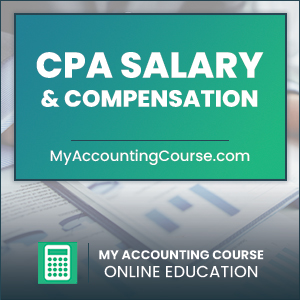 Average Certified Public Accountants (CPA) salaries range from $50,000 to $150,000 depending on the size of the firm and position of the employee. CPAs are fortunate in that they can be relatively assured of job security even in the most turbulent of economic times.
Average Certified Public Accountants (CPA) salaries range from $50,000 to $150,000 depending on the size of the firm and position of the employee. CPAs are fortunate in that they can be relatively assured of job security even in the most turbulent of economic times.
Businesses, as well as individuals, need the services of a skilled financial professional to oversee important functions that range from government compliance to routine bookkeeping to personal income tax preparation.
Projected growth rate in the U.S. for 2014-2024 is 11%, which outpaces other professions. So, the employment market for CPAs is a secure one.
How Much Do Certified Public Accountants Make?
Contents [show]
Big Firm Salary vs Small Firm Salary
Once you pass the CPA exam there are many career options to choose from. Some CPAs seek the prestige of working for a Big Four accounting firm such as Ernst & Young or PwC, while others may choose to work for a mid-sized or small firm. Obviously, a larger firm will pay more than a smaller firm. Here’s a break down of average public accounting salaries at each firm size.
Big CPA Firm Salaries ($250M+ Revenue)
- Manager: $ 97,000 – $147,000
- Senior: $ 79,000 – $110,000
- 1-3 Years: $ 62,000 – $87,000
- Less Than 1 Year: $ 52,000 – $68,000
Mid-Sized CPA Firm Salaries ($25 – $250M Revenues)
- Manager: $ 86,000 – $122,000
- Senior: $ 70,000 – $101,000
- 1-3 Years: $ 57,000-$82,000
- Less Than 1 Year: $ 48,000 – $66,000
Small CPA Firm Salaries (Less than $25M Revenues)
- Manager: $ 77,000 – $112,000
- Senior: $ 66,000 – $88,000
- 1-3 Years: $ 53,000 – $74,000
- Less Than 1 Year: $ 46,000 – $59,000
These figures don’t include what partners in these firms can make. These figures also don’t reflect the difference in compensation between tax, audit, and assurance career paths. Certified public accountants also work for corporations doing internal work and typically fill executive level positions like CFO and COO. These compensation packages depend greatly on the size of the company and the industry.
While you may not get rich overnight working as an accountant, the compensation package as whole can provide a steady, comfortable and above-average living wage with room to grow. CPAs are respected for their knowledge and skills. Thus, they are perfect candidates for upper management in most companies. Other perks that will boost the income bottom line can include bonuses and employee benefits. Workflow is usually even-paced and routine, but many accountants can expect to put in long hours, especially if they specialize in taxes or have to meet corporate reporting and filing deadlines.
Pay scales will vary on what sector the CPA works in, job title, experience and geographic location. Accountants working in large firms, corporations and in metropolitan areas will earn more than their counterparts in government, not-for-profit and as self-employed in smaller marketplaces.
Average CPA Salary
- The average annual salary for a CPA is $62,123
- The annual median salary for CPAs specializing in taxes as well those specializing in auditing is approximately $54,000
- The annual salary for a corporate accounting position is $53,365
- Salaries for financial services vary based on job title. The annual salary for a Risk Management Analyst is $73,733 whereas the annual median salary for a Benefits Analyst is $78,900
CPAs in major MSAs have a greater earning potential than those practicing in smaller regions. The following are some examples of what a CPA can expect to earn in various regions throughout the U.S.:
- Atlanta: $84,544
- New York City: $77,703
- Columbus, OH: $62,018
- Dallas: $71,815
- Tulsa, OK4: $66,980
- Los Angeles: $70,508
- Portland, OR: $61,110
If you are detail-oriented, enjoy crunching numbers, value precision and accuracy in your work, don’t mind working alone, and have a play by the rules personality, then becoming a CPA could be the right decision for you. The American Institute of CPAs (AICPA) is a good starting point for more information as well as your state’s board of accountancy. Here is some more information about becoming a CPA.


